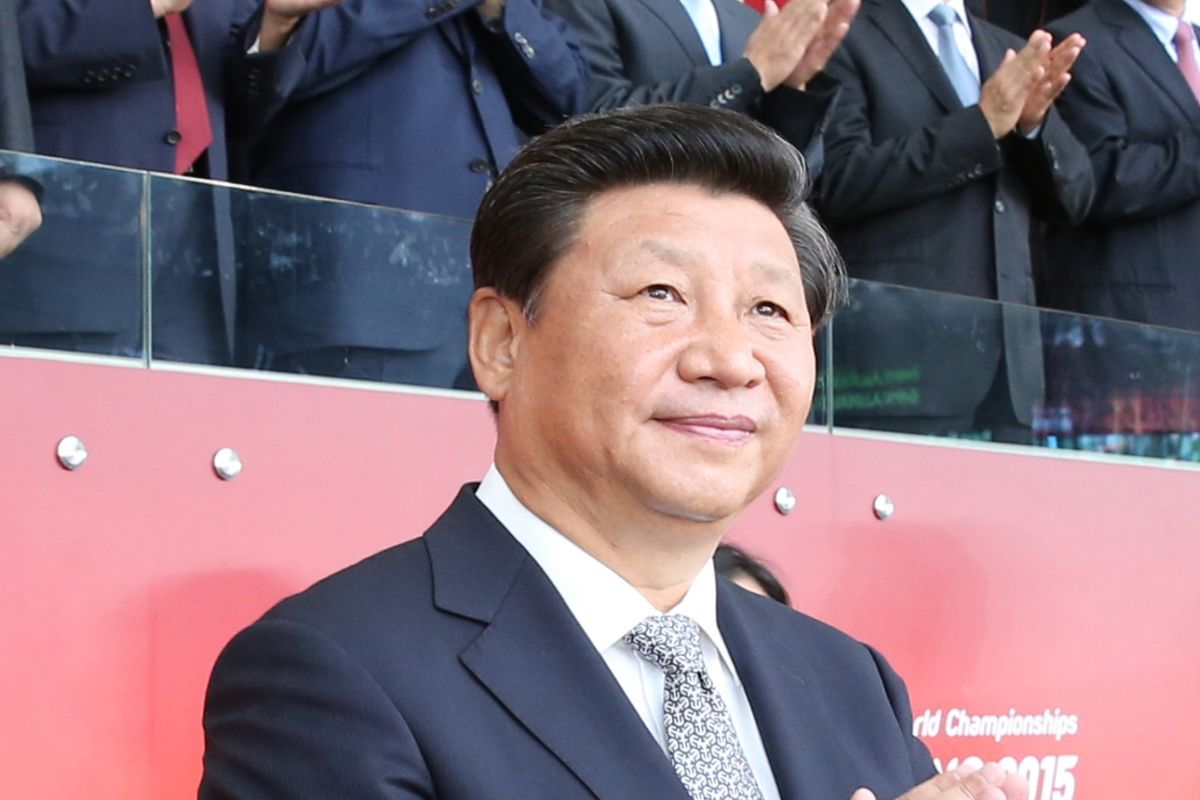Isolate America
Global markets are reeling from the escalating trade war sparked by President Donald Trump’s irresponsible rhetoric and unpredictable behaviour, harming even America’s staunchest allies.
The documentary film has been wary of geopolitics. While it mentions the presence of Uighur militants in Afghanistan and Turkey, it skirts any reference to Pakistan whose military, under pressure from Beijing, has carried out aerial strikes against ETIM militant camps in China’s tribal areas.

Chinese President Xi Jinping. (File Photo: IANS)
A documentary on celluloid cannot in itself enhance the thematic content, most importantly if the fact of the matter has horrified the world. Sunday’s release by the President-forlife, Xi Jinping’s China of a filmic depiction of the Uighur way of life is rather unlikely to convince the world and might eventually play only to the gallery of the Great Hall of the People.
Intrinsically, the film is an essay by the Communist Party of China to justify the massive crackdown and detention of hundreds of thousands of Uighurs, a minority Muslim segment in Xinjiang province.
Advertisement
Significant, therefore, is the timing of the release ~ days after the US House of Representatives overwhelmingly approved a Bill calling upon the Trump administration to toughen its response towards China’s crackdown.
Advertisement
It was an exceptionally robust offensive by the House of Representatives, now helmed by a stern Speaker in Nancy Pelosi. A swift condemnation by China was only to be expected.
The release of the film can, therefore, be contextualised with the fact that the US has upped the ante by putting China on notice.
The Bill has urged President Trump to impose sanctions for the first time on a member of China’s powerful Politburo in the midst of the White House efforts to conclude a trade deal with Beijing.
Apart from the virtual trade war, the equation between Washington and Beijing has soured further still, almost a manifestation of what has been called a “New Cold War”.
Clearly, the documentary genre of film-making is intended to supplement China’s White Paper, issued in July, in a contrived defence of the camps, even describing the units as “re-education centres aimed at “de-radicalising sections of the Uighur Muslim population”.
The repression of Uighurs recalls the persecution of the predominantly Muslim Rohingyas in Myanmar. Preliminary reports suggest that the documentary is bereft of attribution.
Nonetheless, as the title, The Black Hand ~ ETIM and Terrorism in Xinjiang would suggest, the East Turkistan Islamic Movement has been blamed for terrorism in the Xinjiang Uighur Autonomous Region and its links with Al Qaida and the Islamic State of Iraq and Syria. The ETIM is alleged to have received “significant support” from Al Qaida and its slain leader, Osama bin Laden.
The documentary film has been wary of geopolitics. While it mentions the presence of Uighur militants in Afghanistan and Turkey, it skirts any reference to Pakistan whose military, under pressure from Beijing, has carried out aerial strikes against ETIM militant camps in China’s tribal areas. The fineprint of the film must be that China has responded to international criticism over its treatment of the Uighurs. Yet as the credits flit across the screen, it will remain open to question whether the narrative, addressed to an international audience, will stir the world’s conscience. At the core is the travesty of human and/or religious rights.
Advertisement